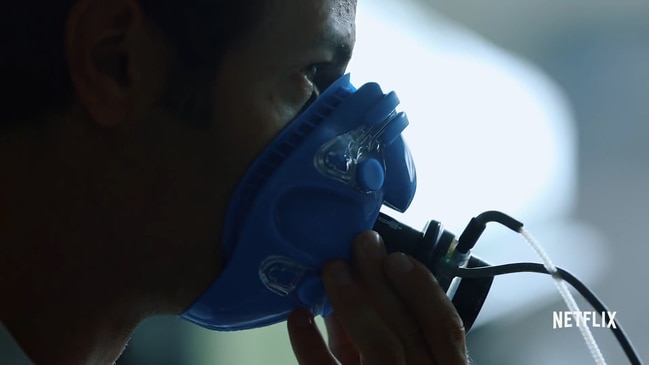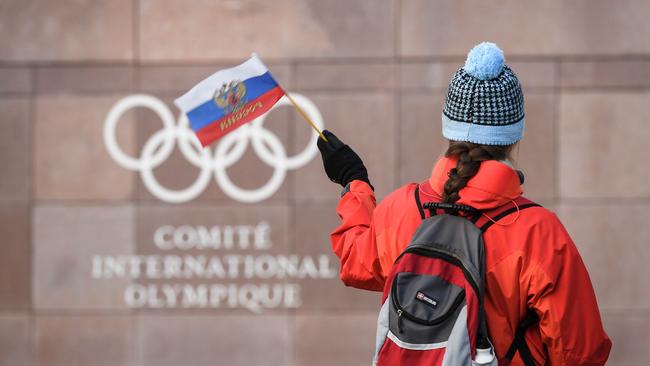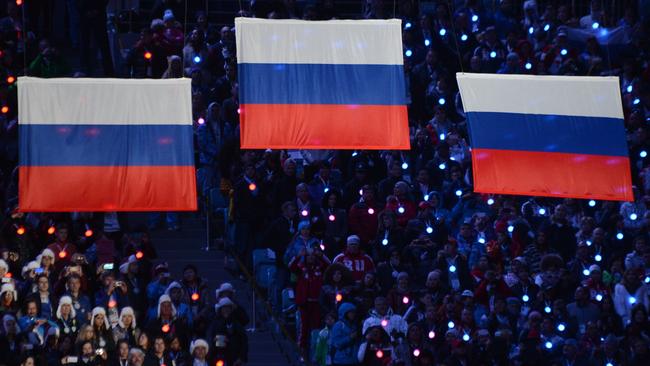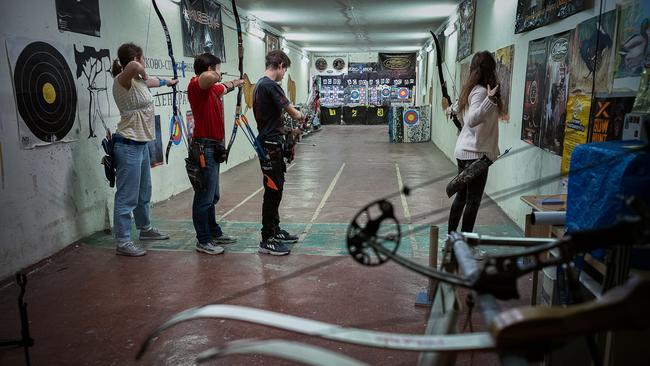Russia out of Tokyo Olympics after WADA’s 4-year blanket ban
The World Anti-Doping Agency has banned Russia from global sporting events, including the 2020 Tokyo Olympics, for the next four years following state-wide doping cover-up.

Olympics
Don't miss out on the headlines from Olympics. Followed categories will be added to My News.
Russia will spend the next four years as an outcast from the rest of the sporting world.
In a historic decision, Russia has been handed a four-year ban from all major sporting events – including the Tokyo 2020 Olympics – by the World Anti-Doping Agency (Wada).
It means the Russia flag and anthem will not be allowed at events such as next year’s Tokyo games and football’s 2022 World Cup in Qatar.
But as was the case at the 2018 PyeongChang Winter Olympics, athletes who can prove they are untainted by the doping scandal will be able to compete under a neutral flag.
Wada’s executive committee made the unanimous decision in a meeting in Lausanne, Switzerland.
Stream over 50 sports Live & On-Demand with KAYO SPORTS on your TV, computer, mobile or tablet. Just $25/month, no lock-in contract. Get your 14-day free trial and start streaming instantly >

It comes after Russia’s Anti Doping Agency (Rusada) was declared non-compliant for manipulating laboratory data handed over to investigators in January 2019.
It had to hand over data to Wada as a condition of its controversial reinstatement in 2018 after a three-year suspension for its vast state-sponsored doping scandal.
Wada says Rusada has 21 days to appeal against the ban. If it does so, the appeal will be referred to the Court of Arbitration for Sport (Cas).
While news of the ban led to immediate support from the Australian government’s “support of the sanctions”, for some, the four-year suspension for a second doping major scandal in three years isn’t long enough.
US lawyer Jim Walden – who represents the man who exposed Russia’s systematic doping strategy, whistleblower Grigory Rodchenkov, told News Corp on Sunday that an unprecedented ban with no fixed return date was the only penalty that could lead to meaningful reform.
“I don’t know if there’s a historical precedent for an unlimited ban – but if ever there was a time where an unlimited ban was appropriate, now is the time.’’

Wada vice-president Linda Helleland agreed with Walden upon news of the ban breaking, telling the BBC the ban was “not enough”.
“I wanted sanctions that cannot be watered down,” Helleland said. “We owe it to the clean athletes to implement the sanctions as strongly as possible.
“I’m not happy with the decision we made today. But this is as far as we could go.
“This is the biggest sports scandal the world has ever seen. I would expect now a full admission from the Russians and for them to apologise on all the pain all the athletes and sports fans have experienced.”
A total of 168 Russian athletes competed under a neutral flag at the 2018 Winter Olympics in PyeongChang after the country was banned following the 2014 Games, which it hosted in Sochi. Russian athletes won 33 medals in Sochi, 13 of which were gold.
Russia has been banned from competing as a nation in athletics since 2015.
Rusada was initially declared non-compliant in November 2015 after a Wada-commissioned report by sports lawyer Professor Richard McLaren alleged widespread corruption that amounted to state-sponsored doping in Russian track and field athletics.

A further report, published in July 2016, declared Russia operated a state-sponsored doping program for four years across the “vast majority” of summer and winter Olympic sports.
In 2018, Wada reinstated Rusada as compliant after the national agency agreed to release data from its Moscow laboratory from the period between January 2012 and August 2015.
However, positive findings contained in a version courtesy of a whistleblower in 2017 – believed to be Rodchenkov – were missing from the January 2019 data, which prompted a new inquiry.
Wada’s compliance review committee (CRC) recommended a raft of measures based “in particular” on a forensic review of inconsistencies found in some of that data.
As part of the ban, Russia may not host, or bid for or be granted the right to host any major events for four years, including the 2032 Olympic and Paralympic Games.
ASADA CEO David Sharpe will welcome the news of Russia’s ban from Tokyo having gone public with a passionate plea on behalf of Australia’s anti-doping agency.
Originally published as Russia out of Tokyo Olympics after WADA’s 4-year blanket ban

